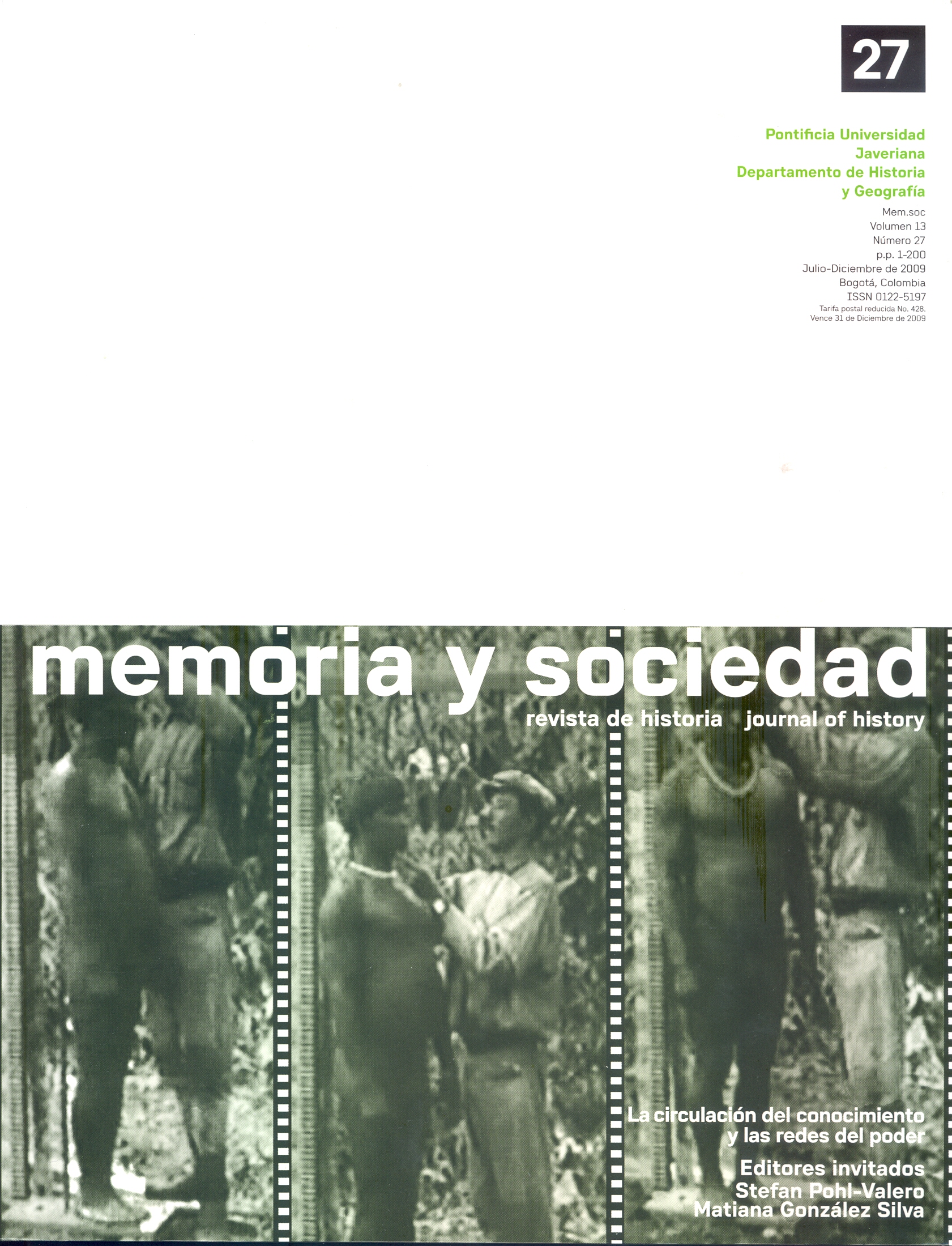Resumen
En este artículo se discute la aparición de prácticas empíricas durante el siglo XVI en el contexto del imperio hispanoamericano. La tesis es simple: la expansión comercial e imperial de España en América (al igual que la de otros reinos Europeos más tarde) impulsó la creación e institucionalización de prácticas empíricas para el estudio de la naturaleza americana. Este fue un evento significativo en el desarrollo de la ciencia moderna que no ha recibido la atención adecuada de los historiadores de la ciencia. La historiografía tradicional ha discutido los mecanismos sociales que ayudaron a establecer prácticas empíricas como parte de la ciencia moderna, pero no considera la experiencia de América como un elemento central en el desarrollo de esas prácticas durante el siglo XVI Existe una correlación clara pero todavía no estudiada entre el proceso de conquista y colonización de América y el desarrollo de prácticas empíricas en los siglos XVI y XVII. Este artículo estudia el proceso de creación de cuestionarios y expediciones para entender el mundo americano como parte no sólo de la formación del Estado moderno sino también como parte del desarrollo de la ciencia moderna.La revista Memoria y Sociedad se encuentra registrada bajo la licencia Creative Commons Reconocimiento 4.0 Internacional. Por lo tanto, esta obra se puede reproducir, distribuir y comunicar públicamente en formato digital, siempre que se reconozca el nombre de los autores y a la Pontificia Universidad Javeriana. Se permite citar, adaptar, transformar, autoarchivar, republicar y crear a partir del material, para cualquier finalidad (incluso comercial), siempre que se reconozca adecuadamente la autoría, se proporcione un enlace a la obra original y se indique si se han realizado cambios. La Pontificia Universidad Javeriana no retiene los derechos sobre las obras publicadas y los contenidos son responsabilidad exclusiva de los autores, quienes conservan sus derechos morales, intelectuales, de privacidad y publicidad.
El aval sobre la intervención de la obra (revisión, corrección de estilo, traducción, diagramación) y su posterior divulgación se otorga mediante una licencia de uso y no a través de una cesión de derechos, lo que representa que la revista y la Pontificia Universidad Javeriana se eximen de cualquier responsabilidad que se pueda derivar de una mala práctica ética por parte de los autores. En consecuencia de la protección brindada por la licencia de uso, la revista no se encuentra en la obligación de publicar retractaciones o modificar la información ya publicada, a no ser que la errata surja del proceso de gestión editorial. La publicación de contenidos en esta revista no representa regalías para los contribuyentes.


